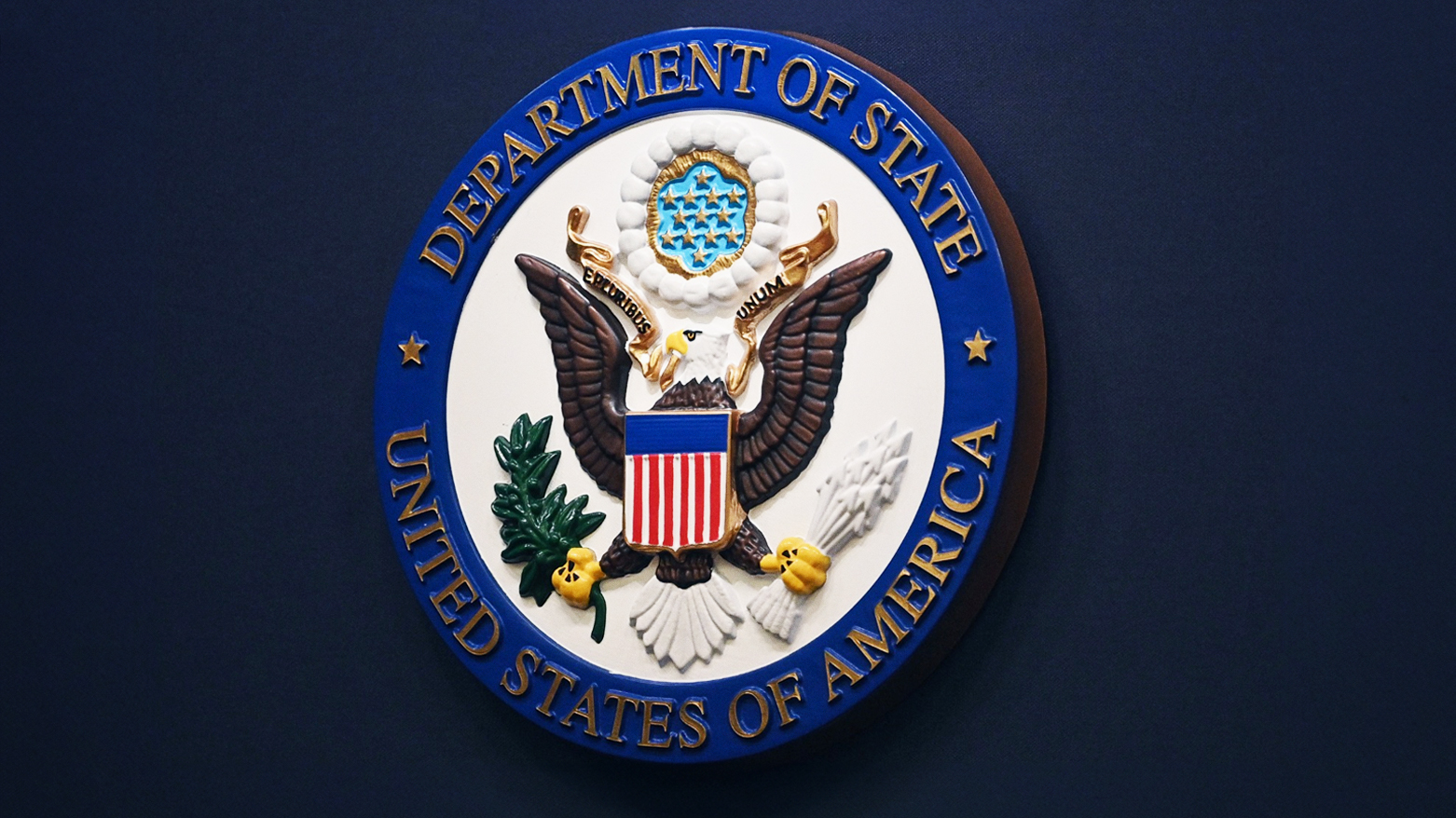U.S. ‘Strongly Condemns’ Drone Attack on Khor Mor Gas Field

WASHINGTON DC, United States (Kurdistan 24) – The U.S. twice on Friday, condemned the drone attack on the Khor Mor gas field in Sulaymaniyah’s Chamchamal district.
The attack follows the first visit of Iraqi Prime Minister Mohammed Shia’ al-Sudani to Washington, which occurred last week.
Developing Iraq’s gas extraction capabilities was a major topic of discussion during that trip. The U.S. wants to lessen Iraq’s dependence on Iran for energy.
In fact, Sudani was much impressed by the case that U.S. officials made. He subsequently stated publicly that Iraq was losing $10 billion a year—$6 billion in what it pays for the gas that it imports from Iran and $4 billion in the gas that it flares in the course of pumping its oil.
Almost certainly, Iran, operating through its proxies in Iraq, was behind the attack on the Khor Mor field. That point is underscored by the renewal of other assaults by Iranian-backed proxies, after an extended period of quiet since early February.
U.S. Condemnations of Khor Mor Gas Field Attack
The U.S. ambassador to Iraq, Alina Romanowski, and the State Department Spokesperson, Matthew Miller, both issued statements condemning Friday’s drone attack on the Khor Mor gas field.
Read More: Drone strikes gas field in Sulaimani province
Their denunciations were quite similar, but the statement coming out of the office of the State Department Spokesperson was the more authoritative, as the Spokesperson speaks for the department as a whole.
“The United States strongly condemns today’s attack on energy infrastructure in the Iraqi Kurdistan Region,” Matthew Miller said in a statement released late on Friday.
The attack killed four Yemeni workers and wounded two others. Miller offered “condolences to the families of those who were killed,” while wishing a “quick recovery” for the injured.
“We encourage the authorities to investigate and bring to justice those who are responsible,” Miller continued, as he affirmed, “The United States will continue to work with the Government of Iraq and the Kurdistan Regional Government in support of Iraqi security, stability, and sovereignty.”
The United Nations Assistance Mission for Iraq (UNAMI) similarly condemned the attack and called for an “investigation to identify and bring the attackers to justice.”
Read More: UNAMI condemns attack on Khor Mor gas field, calls for justice
The Khor Mor field has been attacked eight times in the last two years, as Iraq Oil reported. The last such attack was on Jan. 25.
“The Iraqi government has never published the results of its investigations or held anyone accountable,” Iraq Oil said. So if Baghdad were to comply with the requests from the U.S. and U.N. that it investigate and bring to justice those responsible, it would represent an important new step for the Iraqi government, one which would be much welcomed in Washington and New York.
In 2021, the U.S. International Development Finance Corporation (DFC) provided a $250 million loan to the UAE’s Crescent Petroleum and Dana Gas, which operate the Chamchamal field, to expand its capabilities. However, the attacks on the facility have interfered with the implementation of the project.
Strong Indications of Iran’s Role
The timing of the latest attacks on the Chamchamal gas field roughly parallels that of the attacks by pro-Iranian militias on U.S. forces in Iraq and Syria.
The last attack on those forces occurred on Feb. 4. Then, Sudani visited Washington and had a largely successful visit. That visit was from Apr. 15 to Apr. 20.
Read More: U.S. Seeks to Broaden Ties with Iraq, as PM Sudani Makes First Visit to Washington
But since then, trouble has ensued. Presumably, that is a message from Iran.
The attacks on U.S. forces began anew on Apr. 21, when five rockets were fired from the Iraqi town of Zummar at a U.S. military base in northeast Syria.
On Apr. 22, two drones were fired at Ain al-Asad air base, in Iraq’s western Anbar province. It hosts U.S. forces, which are based there as part of the anti-ISIS coalition.
There were no casualties or significant damage from either attack, but they marked an end to the extended period of quiet.
Addressing reporters on Apr. 23, Pentagon Press Secretary, Maj. Gen. Patrick Ryder, attributed the attacks to “Iran-aligned militia groups,” noting they were “the first attacks on coalition facilities since February 4th.”
